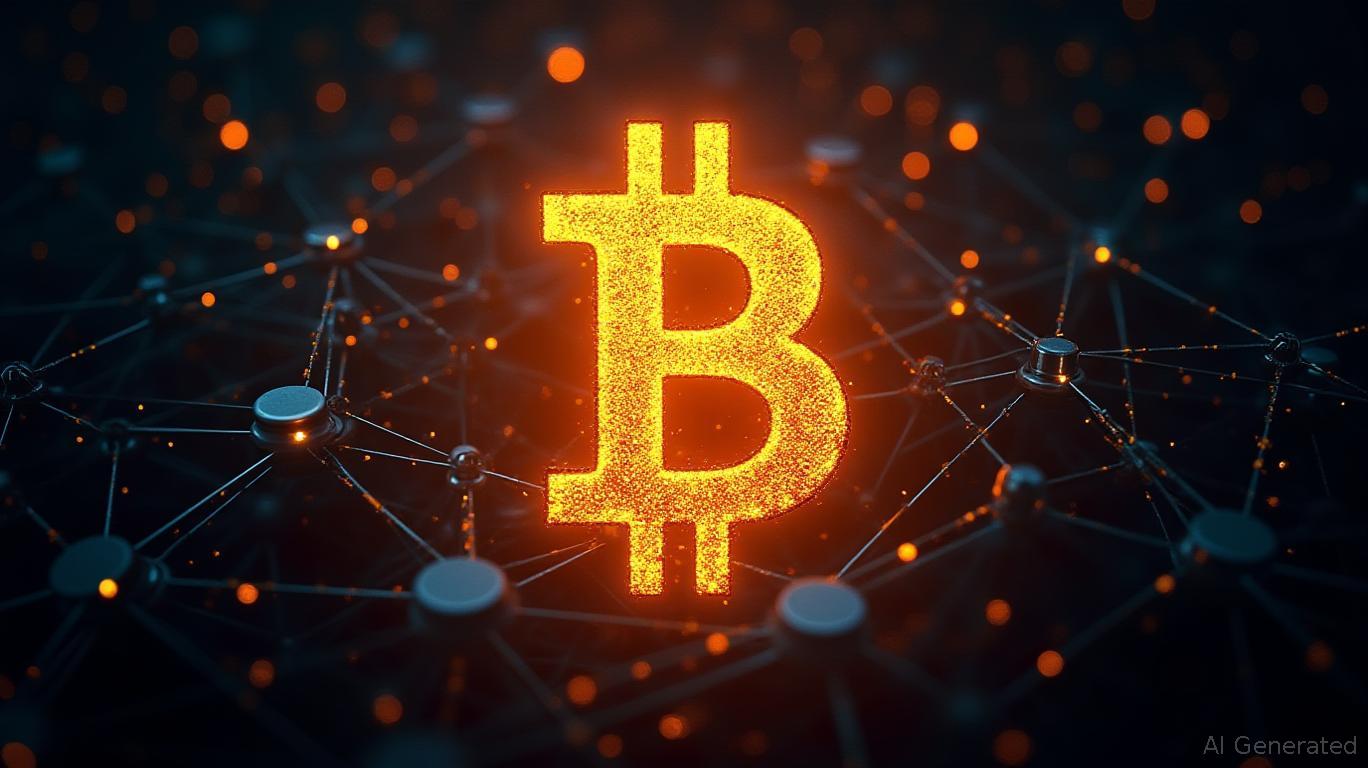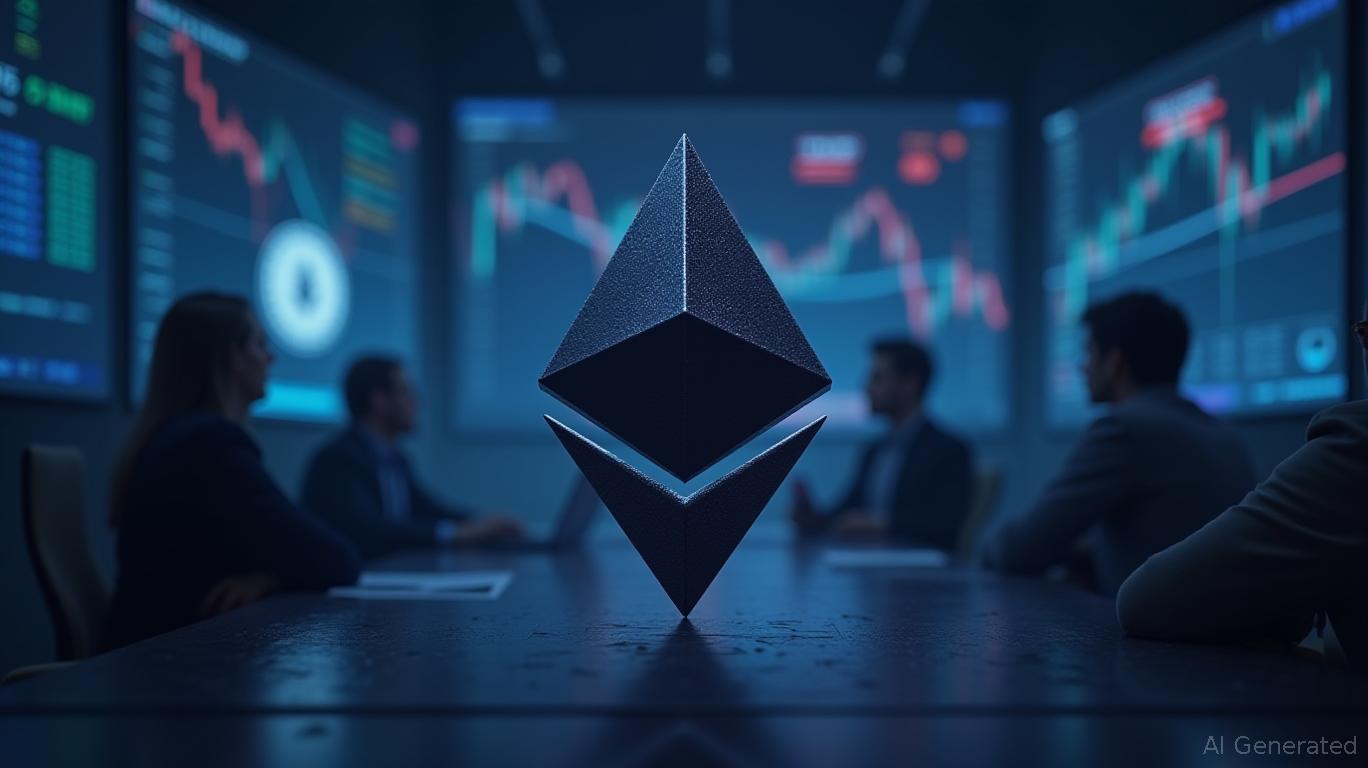Bitcoin News Today: The Bitcoin Fork Debate: Balancing Spam Prevention and Open Access Principles
- Bitcoin developers debate a temporary soft fork to curb spam transactions, sparking a debate over balancing spam control with permissionless principles. - Supporters like Luke Dashjr argue it's a pragmatic measure to address non-monetary transactions clogging the network, despite calling it an imperfect solution. - Critics warn it risks setting a dangerous precedent, undermining Bitcoin's core principles and lacking clear content definitions for "questionable" transactions. - The temporary soft fork, set
Bitcoin Developers Discuss Temporary Soft Fork to Address Network Spam
The Bitcoin development community is currently split over a proposed short-term soft fork designed to limit spam transactions on the blockchain. This has ignited a heated discussion about how to balance preventing misuse with maintaining the open, permissionless nature of Bitcoin. The proposal, submitted under the alias "Dathon Ohm," aims to temporarily restrict arbitrary data from being stored on the blockchain, providing developers with a window to devise a more permanent fix, according to

This proposal has received backing from notable individuals such as Luke Dashjr, a veteran
On the other hand, detractors believe this approach could set a troubling example. Leonidas, an influential member of the Ordinals community on X, cautioned that filtering out certain transaction types—regardless of their content—might erode Bitcoin’s foundational values. "There is no real distinction between accepting the censorship of JPEG or
Jameson Lopp, co-founder of the Bitcoin security company Casa, also voiced reservations, pointing out that the proposal does not clearly define what is considered "legally or morally questionable" material. He further noted that node operators already agree to consensus rules by running nodes and can choose to disengage if they disagree.
This ongoing debate reflects a deeper conflict within the Bitcoin community. Supporters of the soft fork argue that spam transactions increase transaction fees and harm network efficiency, while critics worry about the risks of centralized decision-making over transaction validity. The proposal’s temporary nature, with a set expiration, is viewed as a compromise. Still, the lack of developer agreement highlights the challenge of reconciling technical measures with core philosophical beliefs.
As discussions continue, the decision could influence Bitcoin’s future as its use cases evolve. At present, the proposal is still under review, and there is no set date for its potential rollout.
Disclaimer: The content of this article solely reflects the author's opinion and does not represent the platform in any capacity. This article is not intended to serve as a reference for making investment decisions.
You may also like
Ethereum News Update: SharpLink’s Ethereum-Centric Approach Generates $23 Million in Staking Profits, Doubles Shareholder Assets
- SharpLink Gaming boosts ETH holdings to 859,853, valued at $3.5B, via strategic accumulation and staking rewards. - $76.5M capital raise funds ETH purchases below raise price, generating $23M in staking yields since June 2025. - ETH Concentration metric doubles to 4.0, reflecting institutional crypto adoption and shareholder value focus. - As public entity with 601K native ETH and 258K staked ETH, SharpLink sets crypto treasury benchmark with transparent metrics.

U.S.-China Agreement Prevents Tariff Increase, Halts Restrictions on Rare Earths
- U.S.-China officials secured a framework to delay 100% tariffs and suspend China's rare earth export curbs, averting supply chain risks for U.S. tech/defense sectors. - The deal, negotiated in Malaysia, includes resuming Chinese soybean purchases and sets the stage for a potential Trump-Xi meeting at the APEC summit. - China will delay rare earth restrictions for a year while policy is reviewed, easing pressure on U.S. firms like Boeing and Tesla reliant on Chinese materials. - Analysts note the agreemen

Ethereum News Update: Security Concerns Arise for Ethereum's Layer 2 Solutions While Solana Attracts Increased Institutional Interest
- Solana co-founder Anatoly Yakovenko criticized Ethereum L2s for lacking mainnet-level security, sparking debates over centralization risks and technical vulnerabilities in scaling solutions. - Fidelity added Solana to its platforms, reflecting growing institutional adoption, while Ethereum's L2 expansion faces scrutiny over liquidity fragmentation and L1 staker revenue dilution. - Market sentiment diverges: Ethereum sees whale accumulation, while Solana whales distribute large holdings, signaling contras

Bitcoin News Update: University of Tampa Introduces Bitcoin Course to Meet Industry Need for Crypto-Savvy Professionals
- University of Tampa introduces a Bitcoin-focused course to meet industry demand for crypto expertise, covering technical, market, and investment aspects. - Tesla's $1.315B Bitcoin holdings and Elon Musk's public support highlight corporate legitimacy of crypto, influencing academic curriculum development. - Market volatility between $105,000-$115,000 underscores need for strategic crypto education as institutions like Chiang Mai University expand blockchain partnerships. - Ethereum's $4,150 resistance an
